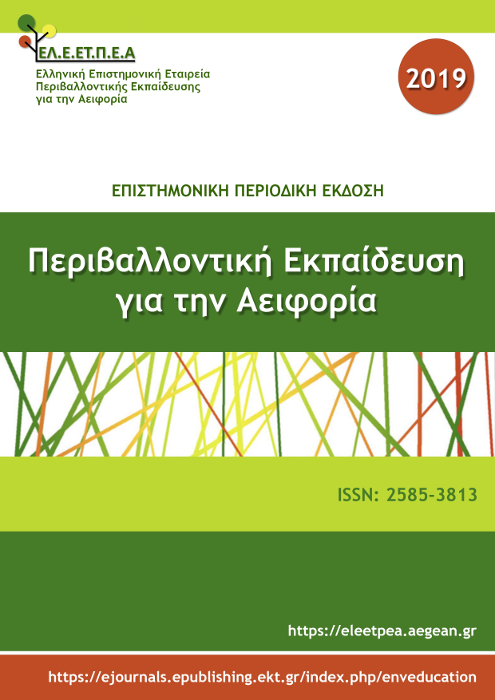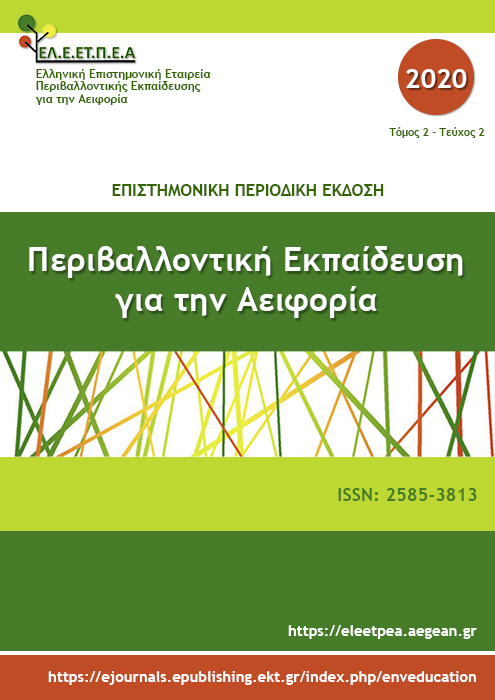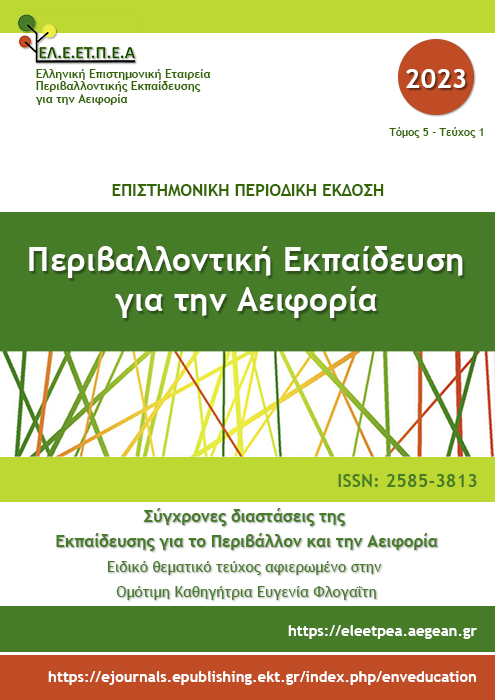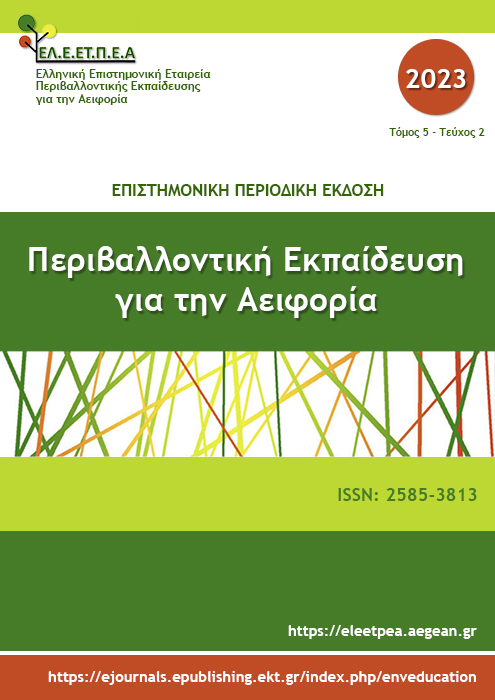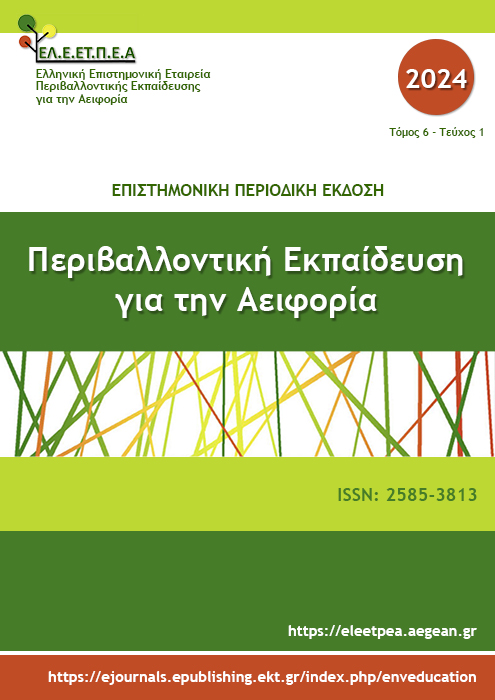Εκπαίδευση Waldorf και Αειφόρο Σχολείο. Διερευνώντας τη σύγκλιση ανάμεσα σε δύο εκπαιδευτικά μοντέλα μέσα από μια αφηγηματική έρευνα
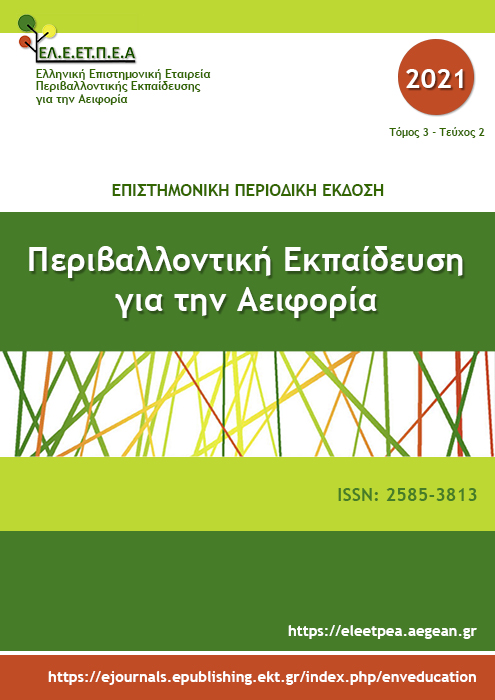
Περίληψη
Στην παρούσα εργασία επιδιώκεται η διερεύνηση της σχέσης ανάμεσα στην «εκπαίδευση Waldorf» και στην ιδέα του «αειφόρου σχολείου» μέσα από μια μικρής κλίμακας ποιοτική έρευνα που διενεργήθηκε σε ένα Ελληνικό σχολείο Waldorf. Οι δυο εκπαιδευτικές προτάσεις παρουσιάζονται αρχικά στην ιστορική διαδρομή τους και σε σχέση με βασικές έννοιες και αρχές που εισάγουν, ενώ στη συνέχεια επιχειρείται η εμπειρική αποτύπωση των κοινών τόπων τους μέσα από μια αφηγηματικού τύπου έρευνα με συμμετέχοντες εκπαιδευτικούς του σχολείου Waldorf. Η θεματική ανάλυση ανέδειξε 3 άξονες στους οποίους εστιάζεται η σύγκλιση ανάμεσα σε ένα αειφόρο σχολείο και ένα σχολείο Waldorf: κατά προτεραιότητα στο επίπεδο της παιδαγωγικής καινοτομίας και ποιότητας και ακολούθως στα επίπεδα της καλλιέργειας κλίματος συνεργασίας και συμμετοχής και του προσανατολισμού των υποδομών και λειτουργιών του σχολείου στην κατεύθυνση της περιβαλλοντικής αειφορίας. Η έρευνα προσφέρει αξιόλογες ενδείξεις για τη δυνατότατα ανάπτυξης μιας γόνιμης συνομιλίας σε επίπεδο εκπαιδευτικής θεωρίας και πράξης ανάμεσα στην Περιβαλλοντική Εκπαίδευση/Εκπαίδευση για την Αειφόρο Ανάπτυξη και σε εκπαιδευτικές προτάσεις που προσεγγίζουν το σχολείο μέσα από μια μεταρρυθμιστική δυναμική, όπως η εκπαίδευση Waldorf.
Λεπτομέρειες άρθρου
- Πώς να δημιουργήσετε Αναφορές
-
Δασκολιά Μ., & Κουκουζέλη Β. (2022). Εκπαίδευση Waldorf και Αειφόρο Σχολείο. Διερευνώντας τη σύγκλιση ανάμεσα σε δύο εκπαιδευτικά μοντέλα μέσα από μια αφηγηματική έρευνα. Περιβαλλοντική Εκπαίδευση για την Αειφορία, 3(2), 65–80. https://doi.org/10.12681/ees.28816
- Ενότητα
- Articles

Αυτή η εργασία είναι αδειοδοτημένη υπό το CC Αναφορά Δημιουργού – Μη Εμπορική Χρήση – Παρόμοια Διανομή 4.0.
Οι συγγραφείς διατηρούν τα πνευματικά δικαιώματα και παρέχουν στο περιοδικό το δικαίωμα της πρώτης δημοσίευσης μαζί με την αδειοδότηση της εργασίας με CC-BY-NC-SA, που επιτρέπει σε άλλους να μοιράζονται αυτή την εργασία με αναγνώριση του συγγραφικού δικαιώματος και την αρχική δημοσίευση σε αυτό το περιοδικό.


